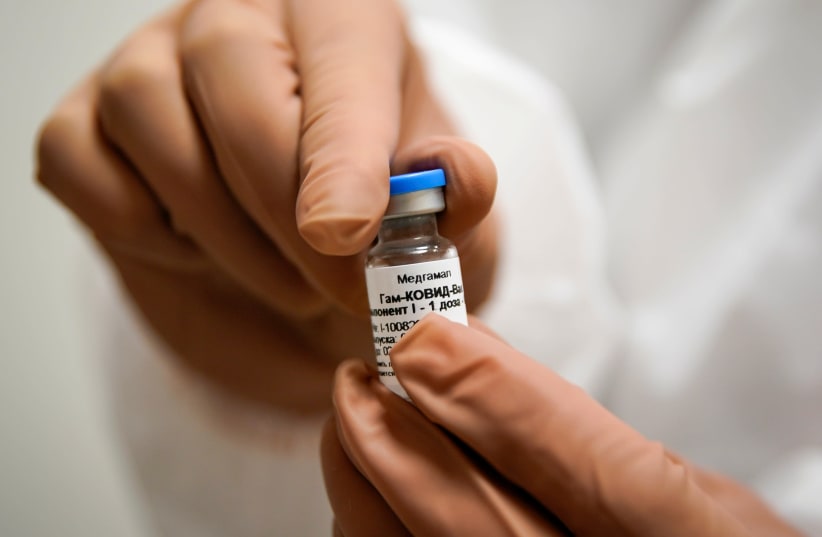The first shipment of the Russian vaccine Sputnik V is expected to arrive in Iran in the coming days, Tehran Times reported Mohammad Reza Shanehsaz, head of the country’s Food and Drug Administration, saying. However, while the country has struggled to begin vaccinating its population, news of the Russian vaccine was not accepted with undisputed approbation.Almost 100 members of Iran’s Medical Council Board sent a letter to President Hassan Rouhani saying that the use of Sputnik V before it receives international approval may be “dangerous,” al-Jazeera reported. The Iranian health minister has said that maligning any state-imported vaccines was tantamount to “national treason.”
Iran’s purchase of 4.2 million doses of Oxford-AstraZeneca’s vaccine reported this week also faced potential hurdles following Supreme Leader Ayatollah Ali Khamenei’s January statement that Iran would not buy British and US vaccines. Bloomberg reported that the statement released to the Iranian press regarding the expected import made sure to refer to AstraZeneca, a Swedish-British company, as a “Swedish company,” to avoid a potential clash with the supreme leader’s ban.
Elsewhere in the region, the Lebanese newspaper The Daily Star reported this week that discussions are being held to open the country’s vaccination drive to private players, who would be able to import additional doses.
Last week, both Lebanon and Egypt launched an online registration platform to allow citizens to sign up for vaccination. Egypt began its rollout on January 24 but progress is expected to be slow. The North African country has experienced a second wave of the pandemic but numbers have tapered off, leading an Egyptian official to estimate that the country is past the wave’s peak, Arab News reported.
On Wednesday, the World Health Organization declared that some 20% of the Syrian population will be vaccinated in an effort that falls under the umbrella of its COVAX program, which aims to help lower-income countries vaccinate their population. The organization hopes to begin the limited rollout in April.
In Jordan, reports this week have indicated that the kingdom is seeking to add the Russian vaccine Sputnik V to the Sinopharm and Pfizer vaccines currently approved for use in the vaccination drive, which was launched last month.
To the kingdom’s east, Iraqi Health Minister Hassan al-Tamimi has said that a nationwide curfew may be reimposed if numbers maintain their upward incline, Xinhua News reported. Tamimi said on Monday that Iraq would receive 2.5 million to 3 million vaccine doses at the end of the month.
In Israel, vaccination is now offered to all citizens aged 16 and over, following a decline in recent days in the number of those seeking vaccination. A total of 3.3 million Israelis have been vaccinated to date but the country continues to diagnose thousands of new cases daily.
Kuwait has imposed a set of new restrictions following a recent rise in the number of cases. Business working hours have been limited and gatherings banned. These measures are in addition to Wednesday's declaration that entry of foreigners into the country would be forbidden for two weeks, starting February 7. Neighboring Saudi Arabia has announced similar measures in recent days, also resulting from an increase in the number of infections.
Here are the latest COVID-19 numbers for the Middle East and North Africa as of 12:30 pm Greenwich Mean Time (UTC±0) on Thursday.
